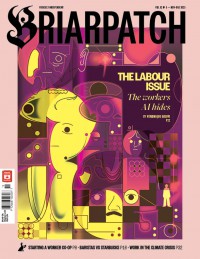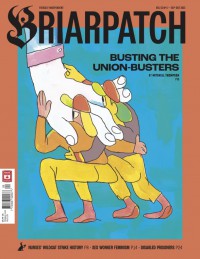-
 Magazine
MagazineReflections on winning the Fight for $15 in Saskatchewan
In some ways, winning a $15/hour minimum wage by 2024 is a truly hopeful sign for Saskatchewan politics – and shows that even the most right-wing governments will bow to movement demands. In other ways, it’s deeply inadequate.
-
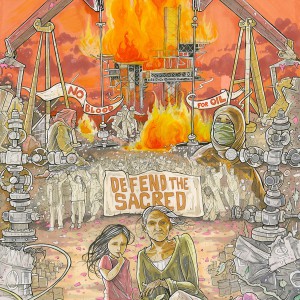 Magazine
MagazineDouble dare
As another recession looms, the left must be ready when it hits – with anti-capitalist theory that can tell people why we’ve had 12 economic crises in the last century alone, why the rich just get richer each time, and why it’s working class people who always lose.
-
 Magazine
MagazineCanada and the crisis of capitalism
150 years ago, Karl Marx observed that crisis is encoded in capitalism’s DNA. Today, Canadian capitalism has entered another period of serious volatility – one that may culminate in a crisis even deeper than that of 2008.
-
 Magazine
MagazineQu’est-ce que la décroissance?
Pour les partisans de la décroissance, il est urgent que nos sociétés rompent avec la course à la croissance économique avant que les limites biophysiques de notre planète ne nous imposent une décroissance forcée et brutale. Aujourd’hui, le mouvement fleurit au Québec.
-
 Magazine
MagazineDécroissance
The degrowth movement calls for a radical downscaling of production and consumption, in order to save us from climate catastrophe. Today, the movement is blooming in Quebec.
-
 Magazine
MagazineDegrowth vs. the Green New Deal
Unlike the Green New Deal, degrowth isn’t a policy platform – it’s more of a movement, or what participants call an “umbrella concept.” What would a conversation between degrowth and the Green New Deal look like?
-
 Magazine
MagazineConfronting economic barriers to a just transition
I sat down with six economists to ask them two pressing questions: first, what are the biggest economic barriers to a just transition in Canada and, second, how do we overcome them?
-
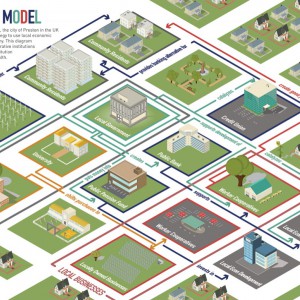 Magazine
MagazineHow will we pay for a just transition?
Should we rely on governments to provide money for the just transition, or can we build our own non-extractive economies?
-
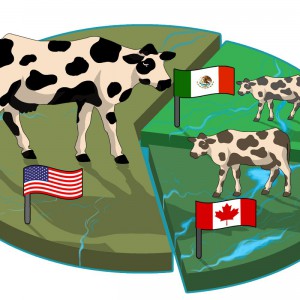 Magazine
MagazineHow can farmers fight back against the new NAFTA?
NAFTA 2.0 is chipping away at hard-won policies that guard Canadian farmers from price volatility and ensure high labour and environmental standards. The National Farmers Union is fighting back – at the level of both grassroots and policy.
-
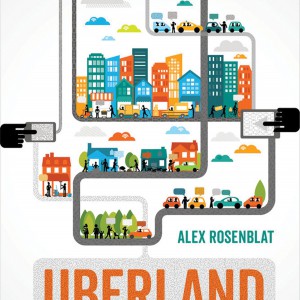 Magazine
MagazineResisting Uber’s rhetoric
If we accept the premise that “algorithms” (not capitalists) are asserting control over the future of work, it will be difficult to hold anyone to account for the human costs of unchecked automation. Finn LeMaitre reviews Uberland by Alex Rosenblat.
-
_300_300_90_s_c1_c_c.jpg) Magazine
MagazineThe Oil Industry’s PR Offensive
A climate justice journalist heads to the Global Petroleum Show in Calgary to see how the industry is pushing its messages, and who is doing doing the heavy lifting.
-
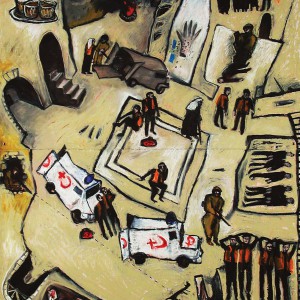 Magazine
MagazineStart-up nation, apartheid state
Israeli R&D companies and their Canadian collaborators that appear to work toward clean energy or life-saving medical technologies are part of an economic infrastructure that both extends the physical occupation of Palestine and normalizes the inevitability of the Israeli state.
-
 Magazine
MagazineWe Won’t Back Down
The Fight for $15 in Ontario reminds us that when employers go on the attack or cry wolf about economic crises, workers need not back down.
-
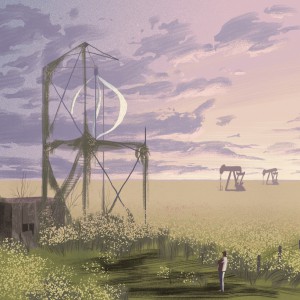 Magazine
MagazineSaskatchewan’s Earthbound Climate Action
In oil-producing southeast Saskatchewan, people’s doubts about climate change reflect the real economic pressures they face.
-
 Magazine
MagazinePostcards From the End of America
What can a book portraying economic ruin in America teach us about Canada’s future?
-
 Magazine
MagazineOrganizing for Gaza’s land and sea
Gaza’s farmers and fishers are on the front lines of a military occupation intended to force them from their land and seaways. The Union of Agricultural Work Committees is organizing Palestinian farmers and fishers to support their efforts to remain on the land and sustain an independent agricultural economy. With the help of a growing international boycott against Israel, their strength is growing.
-
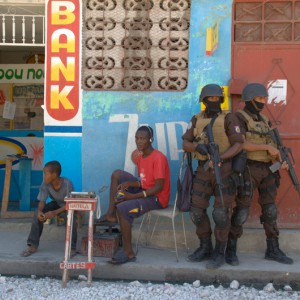 Magazine
MagazineOutsourcing sovereignty
Haiti is an avant-garde microcosm of the privatization, deregulation, and loosening of state structures and protections that is happening everywhere.
-
 Magazine
MagazineTrespassers on their own land?
Economic development based on resource extraction and other high- impact activities continues at the expense of traditional Indigenous land-based economies. While military, oil and gas, and uranium industry development in traditional Dene, Cree, and Métis territories offers some wage labour, it displaces traditional labour such as hunting, trapping, fishing, and gathering.
-
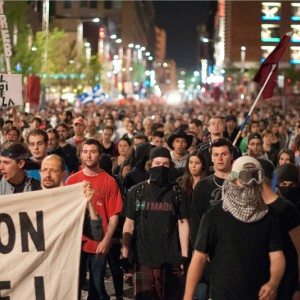 Magazine
MagazineFrom the classroom to the boardroom
With constitutional challenges to the Special Law pending in Quebec courts, the fate of the student movement very much depends on whether the law will be massively defied beginning August 13, when three of 14 CÉGEPs are scheduled to reopen for the completion of the suspended winter semester.
-
 Magazine
MagazineThe combustible campus
The neoliberalization of the university has produced its own antagonists, and it is from the ranks of those who stand to lose the most from this transformation – students and academic workers – that the greatest conflicts have emanated.

